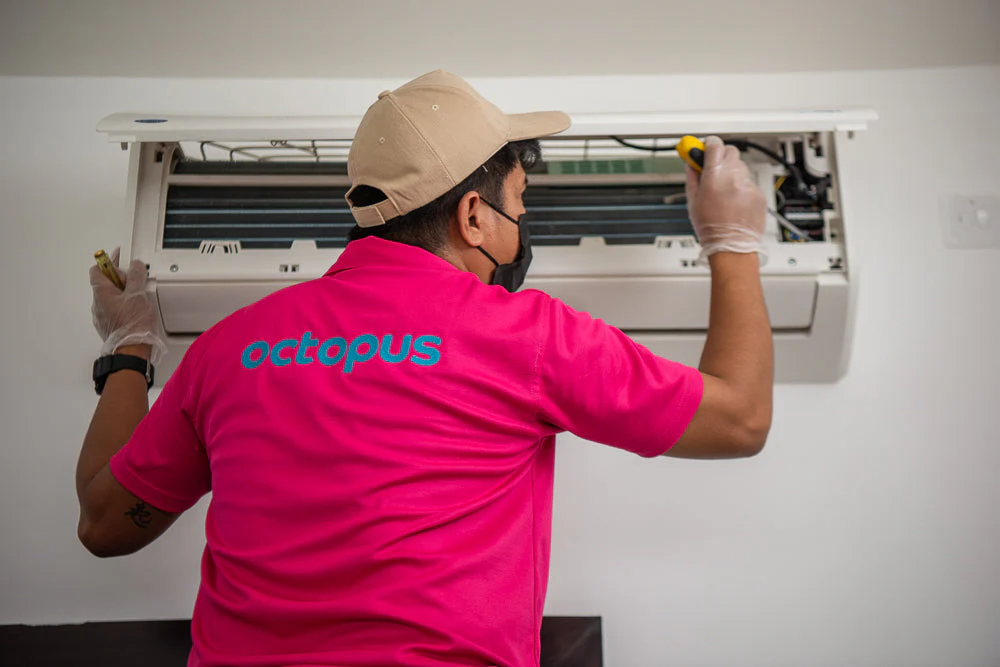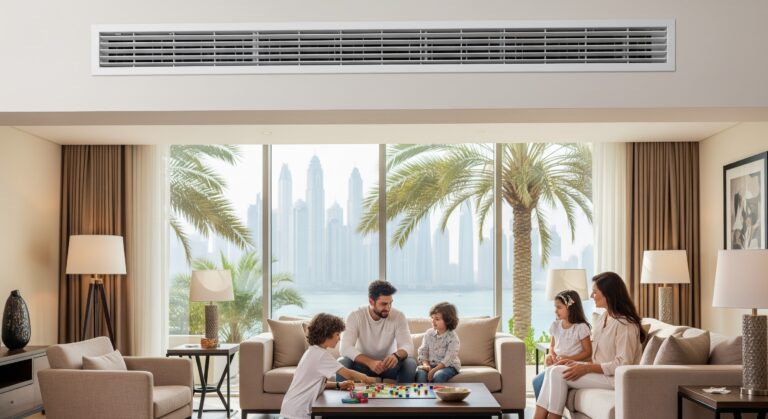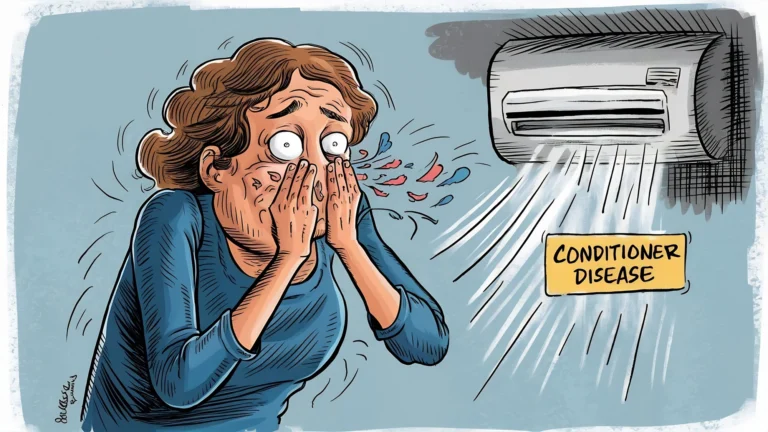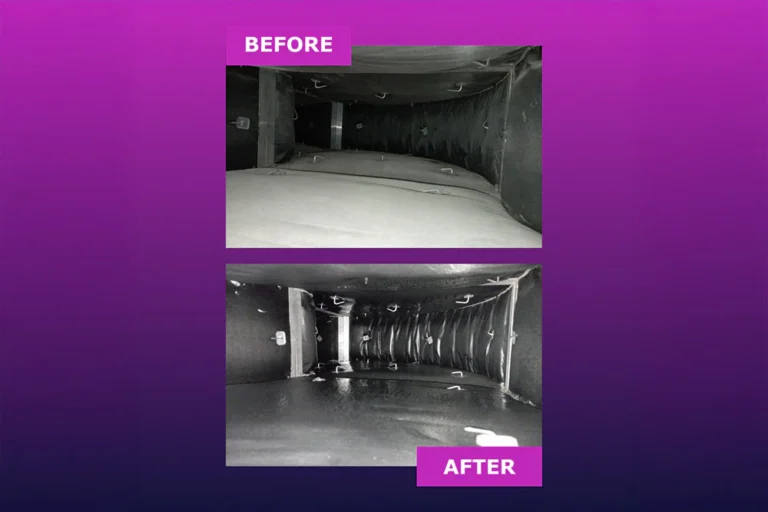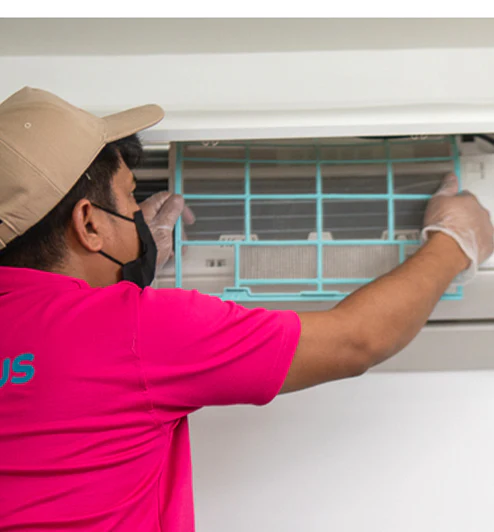High Humidity: Your Home AC Could Be the Culprit – How This Can Impact Your Health
Dubai’s hot and humid climate makes air conditioning a necessity in every home. While AC systems are designed to cool and dehumidify indoor air, improper AC maintenance or malfunctioning components can lead to excessive indoor humidity. High humidity levels not only make your home uncomfortable but can also pose serious health risks. If you often experience dampness, musty odors, or mold growth inside your home, your AC system could be the culprit.
In this article, we will explore how your home AC unit may be contributing to high humidity, the potential health effects, and practical solutions to maintain optimal indoor air quality in Dubai’s climate.
How Your AC Contributes to High Humidity
A well-functioning air conditioner not only cools your home but also removes excess moisture from the air. However, when your AC is not working efficiently, it can contribute to higher indoor humidity levels. Here’s how:
1. Oversized AC Unit
A common mistake homeowners make is installing an oversized AC unit. While a bigger unit cools the room faster, it does not run long enough to effectively remove humidity. This results in a cold yet clammy indoor environment.
Solution:
- Ensure that your AC unit is properly sized for your home.
- Consult a professional HVAC technician to assess whether your AC capacity is suitable for your living space.
2. Clogged Air Filters
Dirty or clogged air filters restrict airflow, causing the AC to struggle in dehumidifying the air efficiently. This leads to excess moisture buildup in your home.
Solution:
- Change or clean air filters every 2-4 weeks, especially during peak summer months.
- Use high-quality filters to improve air circulation and filtration.
3. Malfunctioning Evaporator Coils
The evaporator coils inside your AC unit absorb heat and humidity from the indoor air. If these coils are dirty or frozen, they cannot effectively remove moisture, leading to increased humidity levels.
Solution:
- Schedule regular AC maintenance to ensure the evaporator coils are clean and functioning properly.
- If you notice ice forming on the coils, contact a professional technician immediately.
4. Poor Ventilation and Airflow
Improper ventilation can trap moisture inside your home, preventing the AC from efficiently dehumidifying the air. This often occurs in homes with poor air circulation or blocked vents.
Solution:
- Keep air vents unblocked to allow free airflow.
- Use ceiling fans to improve air movement.
5. Leaky AC Ducts
Leaking AC ducts can allow humid outdoor air to enter your home, leading to moisture buildup. This problem is especially common in older buildings or poorly maintained AC systems.
Solution:
- Have your AC ducts inspected for leaks and seal any openings.
- Regularly check for signs of moisture around air ducts.
6. Incorrect Thermostat Settings
Setting your thermostat too low can cause your AC to short-cycle, cooling the air quickly but not running long enough to remove humidity.
Solution:
- Set your thermostat to 24-26°C for efficient cooling and humidity control.
- Use a smart thermostat to regulate indoor humidity levels.
Health Risks of High Indoor Humidity
Excessive humidity can create an unhealthy indoor environment. Here’s how it can impact your health:
1. Mold and Mildew Growth
High humidity encourages mold and mildew growth, which can spread quickly throughout your home, especially in damp areas like bathrooms, kitchens, and basements.
Health Impact:
- Respiratory issues (asthma, allergies, coughing)
- Eye and skin irritation
- Musty odors and damage to furniture
2. Increased Risk of Allergies
Dust mites thrive in humid environments, increasing the risk of allergic reactions and respiratory problems.
Health Impact:
- Sneezing, runny nose, and itchy eyes
- Worsening asthma symptoms
- Increased discomfort for individuals with respiratory conditions
3. Bacterial and Viral Growth
High humidity creates a breeding ground for bacteria and viruses, leading to a higher risk of infections.
Health Impact:
- Increased colds and flu
- Higher chances of skin infections
- Weakened immune response
4. Dehydration and Fatigue
Excessive indoor moisture can make your body work harder to regulate its temperature, leading to dehydration and fatigue.
Health Impact:
- Feeling sluggish or tired throughout the day
- Increased sweating and discomfort
- Difficulty sleeping
How to Control Indoor Humidity
To maintain a comfortable and healthy home environment in Dubai, follow these humidity control tips:
1. Use a Dehumidifier
If your AC is not effectively removing moisture, consider using a dehumidifier to regulate indoor humidity levels.
2. Maintain Your AC System
Schedule regular AC servicing and coil cleaning to ensure optimal performance and humidity control.
3. Improve Ventilation
Use exhaust fans in kitchens and bathrooms to reduce moisture buildup and improve air circulation.
4. Seal Leaks
Check for leaks in windows, doors, and AC ducts that may allow humid air to enter your home.
5. Use Moisture-Absorbing Materials
Placing moisture-absorbing products like silica gel or charcoal in damp areas can help reduce indoor humidity.
Conclusion
If you are experiencing high humidity levels inside your home, your AC unit could be the culprit. Improper AC operation, dirty coils, or malfunctioning components can contribute to excessive moisture, leading to health risks such as mold growth, allergies, and respiratory issues. Regular AC maintenance, proper thermostat settings, and improved ventilation can help keep indoor humidity under control.
Maintaining the right humidity balance is essential for a healthier and more comfortable home environment in Dubai. If you suspect your AC is not functioning efficiently, consult a professional HVAC technician to diagnose and resolve the issue before it impacts your well-being.

